Chemfriendly: Safety for Sex Workers
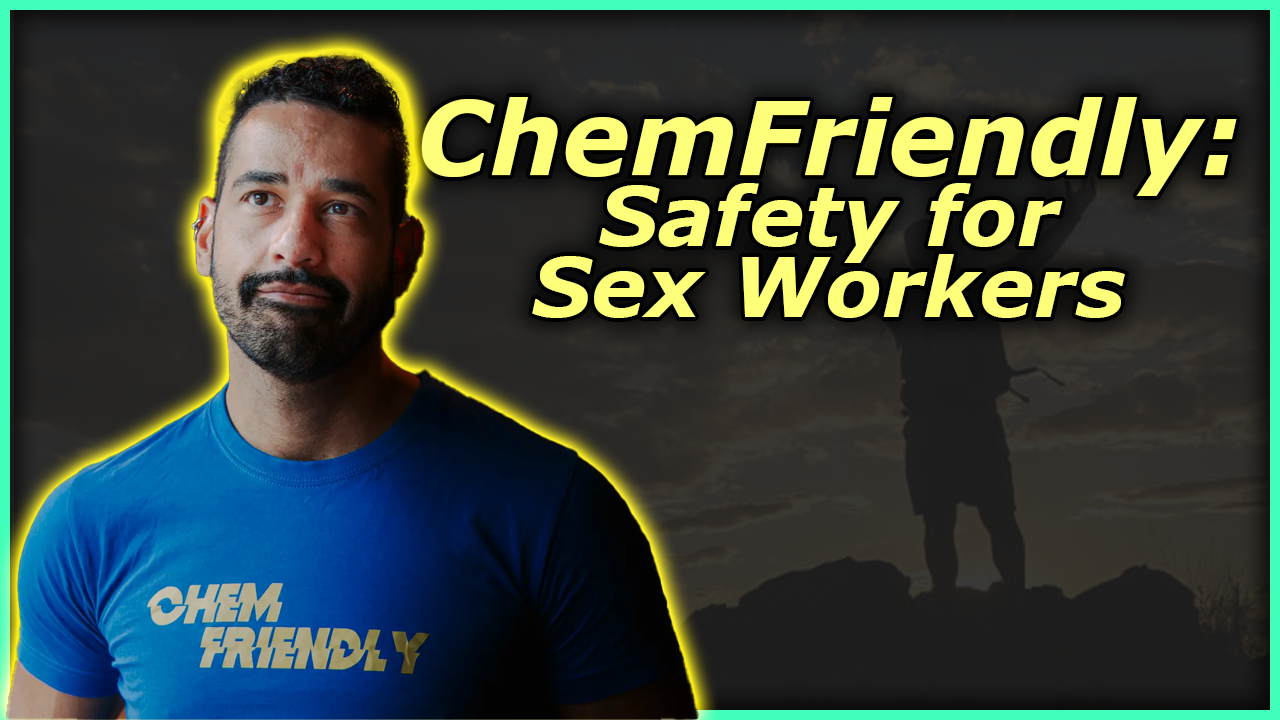
Content Warning: This study guide addresses topics including sexual assault, consent violations, sex work, and substance use in explicit terms. These discussions are intended to support healing and harm reduction. Please engage with this material at your own pace and reach out for support if needed.
This week, we welcome Andrés Lekanger, chairman of ChemFriendly Norway. This discussion offers crucial insights into the intersections of chemsex culture, sex work, consent, and harm reduction—topics that are often shrouded in stigma but are essential for our healing and safety.
As you work through this guide, remember that you're not alone in navigating these complex realities. Whether you're in active recovery, still using, or somewhere in between, this material is designed to meet you where you are with compassion and practical wisdom.
Understanding Chemsex as Culture
Andrés makes a profound point: chemsex isn't just about drugs and sex—it's a culture. Like any culture, it has its own language, meeting places, norms, and meaning-making systems.
This cultural lens helps us understand that when we talk about recovery or harm reduction, we're not just asking people to stop using substances. We're acknowledging that chemsex often provides community, connection, and identity.
The challenge for many of us is that traditional healthcare systems don't recognize this cultural dimension. Drug treatment programs often ignore sexuality, while sexual health services lack understanding of substance use. This gap leaves many of us falling through the cracks, unable to access care that addresses our whole selves.
Key Insight: Recovery doesn't mean abandoning your queer identity or community. It means finding ways to meet your needs for connection, pleasure, and belonging that don't compromise your health and wellbeing.
The Spectrum of Sex Work
One of the most important clarifications from this conversation is that "sex work" is an umbrella term encompassing many different activities: selling sex directly, exchanging sex for drugs or other goods, stripping, porn and content creation, and more. Understanding this spectrum matters because:
- Not everyone who engages in sex work identifies as a "sex worker"
- The risks, experiences, and needs vary dramatically across different types of sex work
- Many people in chemsex situations exchange sex for drugs without thinking of it as sex work
- Stigma often prevents people from accessing help because they don't see themselves reflected in the language being used
The reality is that chemsex and transactional sex often overlap. When we're using, we might exchange sex for drugs, have our judgment impaired about payment or boundaries, or create content we later regret. None of this makes us bad people—it makes us human beings navigating complex situations, often with a brain that's not functioning at full capacity due to substance effects.
Important for helpers and service providers: If you're reaching out to people who exchange sex for goods or other resources, be mindful that they may not identify with the term "sex worker." Use inclusive language like "people exchanging sex for drugs/resources" or simply ask people how they describe their own experiences.
Key Insight: How you label your experiences matters less than ensuring you have access to support, safety information, and harm reduction resources. You get to define your own experience.
Consent in Altered States
Perhaps the most critical topic in this conversation is consent when drugs are involved. Andrés shares that Chemfriendly's "Ask First" campaign was created by chemsex participants themselves—including sex workers—who wanted to take responsibility for preventing rape and sexual assault in their community. You can view the English version of the campaign at askfirst.no (please note that the help services mentioned on the site are located in Norway, though the educational content is universal).
The uncomfortable truth is that central stimulant drugs (meth, cocaine, etc.) significantly impair our ability to:
- Communicate clearly
- Think critically
- Make moral judgments
- Read social cues accurately
- Remember what we agreed to
- Recognize our own boundaries and limits
Additionally, uppers can give rise to sexual urges or preferences that you otherwise would not have had. This can lead you to make sexual choices you later regret, engage in activities that don't align with your values, or pursue scenarios that feel disconnected from your authentic desires.
This creates a situation where consent violations happen frequently, often unintentionally. Studies show that many people in the chemsex scene have been both victims of assault AND have violated someone else's consent, sometimes without realizing it in the moment.
Some critical consent myths to reject:
- Myth: You can't rape someone who's asleep or "G'd out" (unconscious from GHB)
- Truth: Any sexual contact with someone who cannot consent is sexual assault
- Myth: Oral sex isn't "real" rape
- Truth: Any non-consensual sexual act is sexual assault, regardless of the type
- Myth: If someone didn't say no, it's consent
- Truth: Consent must be actively given, not just the absence of resistance
Key Insight: Taking responsibility for consent means assuming that if someone cannot clearly communicate, they cannot consent. It means checking in repeatedly, especially when substances are involved. And it means recognizing that we might need to change our behavior, not just avoid being victims.
Harm Reduction Principles
Harm reduction accepts people where they are, without requiring abstinence, while working to minimize the negative consequences of drug use. For those of us in the chemsex scene, harm reduction might include:
For Drug Use:
- Using test strips to check substances
- Not mixing certain drugs (especially GHB and alcohol)
- Having naloxone available for opioid overdoses
- Staying hydrated and taking breaks
- Using smaller amounts or less frequently
- Keeping a trusted friend aware of your plans
For Sex Work:
- Screening clients when possible
- Having a safety buddy who knows where you are
- Setting clear boundaries before use begins
- Keeping condoms and PrEP accessible
- Having a safety plan for leaving situations
- Knowing your legal rights in your area
- Never buying drugs on behalf of clients (this puts you at legal risk)
- Building and maintaining community connections—community is the best way to ensure good mental and physical health
- Being aware that sex workers can face additional stigma within chemsex scenes, making them more vulnerable to violence and abuse
For Consent:
- Establishing boundaries before drug use
- Talking with each other about what you'll do if someone gets their boundaries violated
- Using the "Ask First" principle—always ask before any sexual act
- When checking in, avoid questions that can easily be answered with "yes" or "no"—instead ask "How are you feeling about this?" or "What do you want right now?"
- Taking photos/videos only with explicit consent, preferably documented when sober
- Checking in regularly, especially if someone seems confused or less responsive
- Being willing to stop if consent becomes unclear
- Not initiating sexual contact with someone who is unconscious or heavily impaired
Key Insight: Harm reduction isn't about being perfect. It's about making safer choices whenever possible, reducing risks incrementally, and treating ourselves with compassion when we make mistakes.
Fighting Stigma Through Community Leadership
One of the most powerful aspects of Chemfriendly's work is that it's led by the people most affected—chemsex participants, sex workers, and other queer drug users. This approach fights stigma by:
- Centering the voices and experiences of those directly impacted
- Rejecting the idea that people who use drugs are incapable of responsibility or leadership
- Creating peer-based support and education
- Challenging the narrative that drug users and sex workers are problems to be solved rather than people with wisdom to share
This model shows us that recovery and harm reduction aren't things done TO us by experts—they're things we do WITH each other, drawing on our lived experience and collective knowledge.
Key Insight: Your experience matters. Your voice matters. You don't have to be "recovered" to help others or to take steps toward harm reduction in your own life and community.
Closing Reflection
Andrés shares an important truth: "Everybody deserves help, otherwise we can't prevent more damage." This includes you. Whether you're a person who has been harmed, someone who has caused harm, or both, you deserve support, healing, and the opportunity to make different choices going forward.
The work of addressing chemsex, sex work, and consent is not easy. It requires us to look at uncomfortable truths, challenge stigma (both external and internalized), and take responsibility for our choices and their impact on others. But this work is also profoundly liberating. When we can talk honestly about our experiences, when we can access harm reduction without judgment, when we can hold ourselves and others accountable with compassion rather than shame—that's when real change becomes possible.
Remember: You don't have to have all the answers. You don't have to be perfect. You just have to be willing to take the next right step, whatever that looks like for you today.
A Note From Dallas
Y'all, these conversations matter. The work that Andrés and Chem Friendly are doing—centering the voices of those most impacted, fighting stigma, and providing practical harm reduction—this is what saves lives.
If you're struggling with any of these issues, please know that you're not alone and you're not broken. Whether you're ready for full recovery, exploring harm reduction, or just trying to survive today, there are people who understand and want to support you.
Keep an eye out for upcoming group coaching opportunities where we can process these topics together in community. Many of you don't have resources for 1:1 coaching, so I'm creating more accessible options for us to do this healing work together.
Love you, Dallas 💚
Additional Resources
Organizations and Websites
Chemfriendly Norway
- Website: www.chemfriendly.no (available in English, Arabic, Ukrainian)
- Ask First Campaign (English): askfirst.no (educational content is universal; help services listed are in Norway)
- Instagram: @chemfriendly_norge (99% of content in English)
- Offers: Information, peer support, harm reduction resources, consent education
For Harm Reduction Information:
- DanceSafe: dancesafe.org (drug checking info and supplies)
- National Harm Reduction Coalition: harmreduction.org
- NEXT Harm Reduction: nextharmreduction.org (chemsex-specific)
For Sexual Health:
- PrEP locator: preplocator.org
- STI testing locations: gettested.cdc.gov
- LGBTQ+ health centers: lgbtcenters.org/LgbtCenters
For Sexual Assault Support:
- RAINN National Sexual Assault Hotline: 1-800-656-4673 (24/7)
- Online chat: rainn.org
- Trans Lifeline: translifeline.org / 877-565-8860
For Recovery Support:
- Crystal Meth Anonymous: crystalmeth.org
- Sex and Love Addicts Anonymous: slaafws.org
- SMART Recovery: smartrecovery.org
- Dr. Dallas Bragg's resources: www.drdallasbragg.com
Key Concepts to Explore Further
If topics in this guide resonated with you, consider researching:
- The "Ask First" campaign at askfirst.no
- Enthusiastic consent vs. absence of "no"
- Harm reduction philosophy and its application to sex work
- The connection between trauma, substance use, and sexual behavior
- Sex worker rights and advocacy movements
- The effects of different drugs on judgment and consent capacity
Additional Resources
Organizations and Websites
Chem Friendly Norway
- Website: www.chemfriendly.no (available in English, Arabic, Ukrainian)
- Instagram: @Chemfriendly_Norge (99% of content in English)
- Offers: Information, peer support, harm reduction resources, consent education
For Harm Reduction Information:
- DanceSafe: dancesafe.org (drug checking info and supplies)
- National Harm Reduction Coalition: harmreduction.org
- NEXT Harm Reduction: nextharmreduction.org (chemsex-specific)
For Sexual Health:
- PrEP locator: preplocator.org
- STI testing locations: gettested.cdc.gov
- LGBTQ+ health centers: lgbtcenters.org/LgbtCenters
For Sexual Assault Support:
- RAINN National Sexual Assault Hotline: 1-800-656-4673 (24/7)
- Online chat: rainn.org
- Trans Lifeline: translifeline.org / 877-565-8860
For Recovery Support:
- Crystal Meth Anonymous: crystalmeth.org
- Sex and Love Addicts Anonymous: slaafws.org
- SMART Recovery: smartrecovery.org
- Dr. Dallas Bragg's resources: www.drdallasbragg.com
Key Concepts to Explore Further
If topics in this guide resonated with you, consider researching:
- The "Ask First" campaign (search: Chem Friendly Ask First)
- Enthusiastic consent vs. absence of "no"
- Harm reduction philosophy and its application to sex work
- The connection between trauma, substance use, and sexual behavior
- Sex worker rights and advocacy movements
- The effects of different drugs on judgment and consent capacity
Reflective Questions
Take your time with these questions. You might want to journal about them, discuss them with a trusted friend or sponsor, or simply sit with them in meditation. There are no right answers—only your truth.
1. How do you define your relationship with sex work?
Have you exchanged sex for drugs, money, housing, or other resources? Do you create sexual content online? Have you stripped or escorted? However you've engaged with transactional sex, how do you feel about naming that experience? Does the term "sex work" feel right, or does it feel like someone else's label being imposed on you?
2. What role does chemsex culture play in your sense of belonging?
Think honestly about what chemsex has provided for you beyond the drugs and sex. Has it been where you met friends? Where you felt desired or valued? Where you could be sexually free in ways you couldn't elsewhere? Understanding what needs chemsex has met can help you figure out how to meet those needs in other ways—or how to engage more safely if you're not ready to stop.
3. When have you experienced or witnessed consent violations in chemsex situations?
This is a difficult question, but an essential one. Have you had sexual experiences while using where you couldn't clearly consent? Have you done sexual things to others when they were too impaired to consent? Have you witnessed others being violated and stayed silent? Facing these experiences honestly, without shame, is the first step toward preventing future harm.
4. What would harm reduction look like for you right now?
If you're not ready for abstinence, what's one thing you could do to reduce harm the next time you use? Could you use less? Tell someone where you'll be? Avoid certain drug combinations? Set a time limit? Test your substances? Set boundaries before you use? Pick just one realistic change.
5. Who in your life understands both the drug use and sexuality aspects of your experience?
Think about your support network. Do you have people you can talk to about chemsex honestly, without judgment? Or do you have to hide the sex part when talking about drugs, and hide the drug part when talking about sex? If you don't have anyone who can hold your whole truth, where might you find that person or community?
Journal Prompts
Set aside uninterrupted time for these prompts. Write without editing yourself—this is for you alone. Let whatever comes up be there, even if it's messy or contradictory.
1. "The first time I exchanged something for sex (or sex for something)..."
Complete this sentence and keep writing. What were the circumstances? How did you feel? What did you tell yourself about it? How do you feel about it now? Has this pattern continued, and if so, what drives it?
2. "If I could go back to a chemsex experience where consent was violated..."
Write about a specific incident where you experienced or witnessed a consent violation. What would you want to say to yourself in that moment? What would you want to say to the other person(s) involved? What do you wish had happened differently? What might you do differently if a similar situation arises in the future?
3. "The thing I'm most afraid to admit about my drug use and sexuality is..."
This is your chance to write the truth you haven't been able to say out loud. Maybe it's about what you've done, what's been done to you, what you still crave, or what you're ashamed of. Write it here, in this private space. Sometimes naming our deepest fears and secrets is what finally allows us to heal them.
4. "My relationship with my body after years of chemsex..."
How do you feel about your body now? Has chemsex changed how you experience pleasure, intimacy, or physical sensation? Do you feel disconnected from your body? More connected? Write about the physical and emotional relationship you have with your own body and sexuality now.
5. "If I didn't have to worry about stigma, judgment, or shame, I would ask for help with..."
Imagine you could get support for anything related to your chemsex experience without fear of judgment. What would you ask for? What do you need? Who would you want to talk to? What kind of help would make the biggest difference in your life right now?
Action Exercises
These exercises are designed to be practical steps you can take this week. Choose the ones that feel relevant and achievable for where you are right now. You don't have to do all of them—even one is meaningful progress.
1. Create a Consent Agreement Template
Before your next sexual encounter (whether chemsex-related or not), write down your boundaries and consent practices. What are your hard nos? What requires explicit asking? What do you want to happen if you or your partner(s) get too high? Consider sharing this with potential partners before using, or at minimum, keep it where you can reference it to stay accountable to your own boundaries.
2. Map Your Harm Reduction Resources
Spend 30 minutes researching and listing resources available in your area:
- Where can you get free condoms, PrEP, or STI testing?
- Where can you get naloxone (Narcan)?
- Are there drug checking services (test strips or lab testing)?
- What LGBTQ+ or chemsex-specific support groups exist?
- Are there harm reduction organizations that can provide supplies or information?
- What are the reporting options if you experience assault?
Save this information somewhere easily accessible. Share it with friends who might need it.
3. Have the Conversation You've Been Avoiding
Identify one person in your life with whom you need to have a difficult conversation about your chemsex experiences. This might be:
- A sponsor or therapist you haven't been fully honest with
- A friend in the scene with whom you need to discuss consent or boundaries
- A sexual partner with whom you need to address a past violation
- A family member you want to educate about harm reduction vs. abstinence
You don't have to have this conversation today, but take one concrete step toward it: write out what you want to say, text them to schedule time to talk, or practice saying it out loud to yourself.
4. Practice Consent Check-ins in Everyday Life
Start building your consent muscles in low-stakes situations:
- Ask before hugging friends
- Check if someone wants advice before offering it
- Ask permission before showing someone a photo on your phone
- Practice saying "Can I...?" and "Is it okay if...?" regularly
This helps normalize consent as an ongoing conversation and builds the habit of asking, which becomes crucial in higher-stakes sexual situations.
5. Connect With Peer Support
Take one action to connect with community:
- Join an online support group for gay men in recovery from chemsex
- Follow harm reduction organizations on social media (like Chem Friendly Norway)
- Attend a virtual or in-person meeting focused on sex and love addiction or chemsex recovery
- Reach out to one person in your life who you know has similar experiences and start an honest conversation
- If you're in sex work, find a sex worker advocacy or support organization
You don't have to share your story immediately—sometimes just listening and knowing you're not alone is the first step.
Connect With Dr. Dallas Bragg:
- Website: www.drdallasbragg.com
- Podcast: The Aftermath Podcast
This study guide is for educational and support purposes. It is not a substitute for professional medical, psychological, or legal advice. If you are in crisis, please contact emergency services or a crisis hotline immediately.
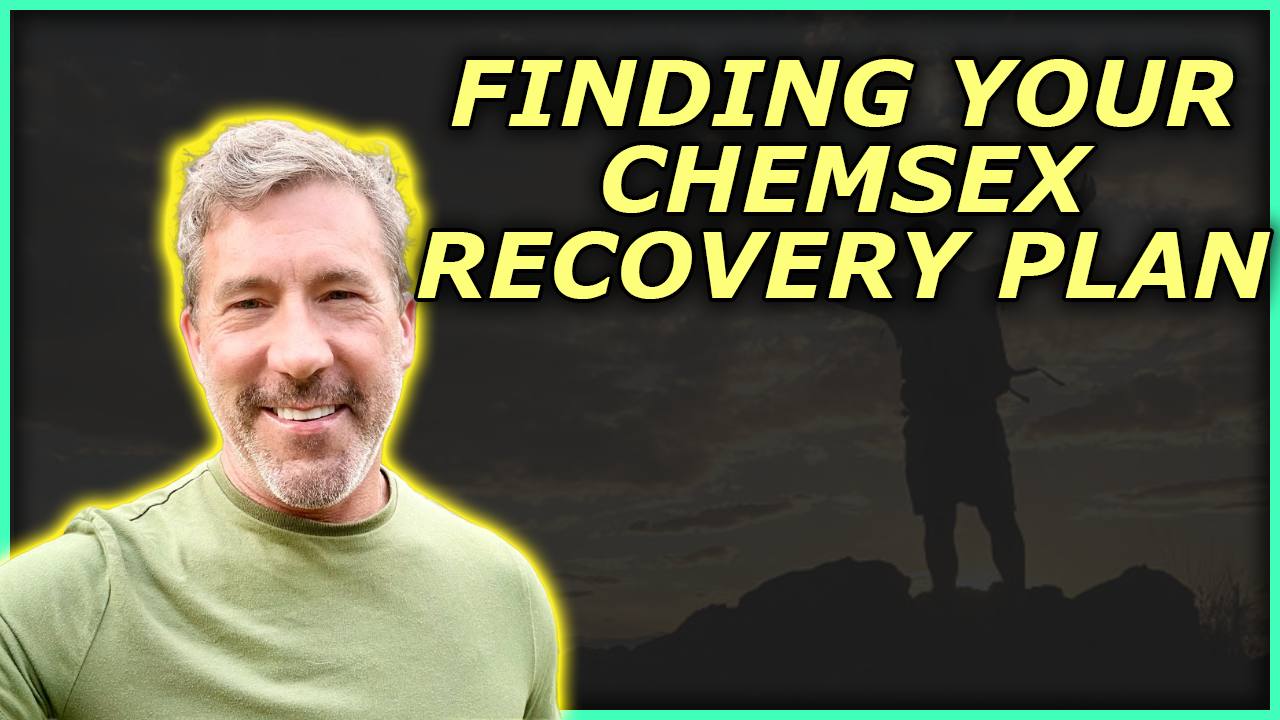
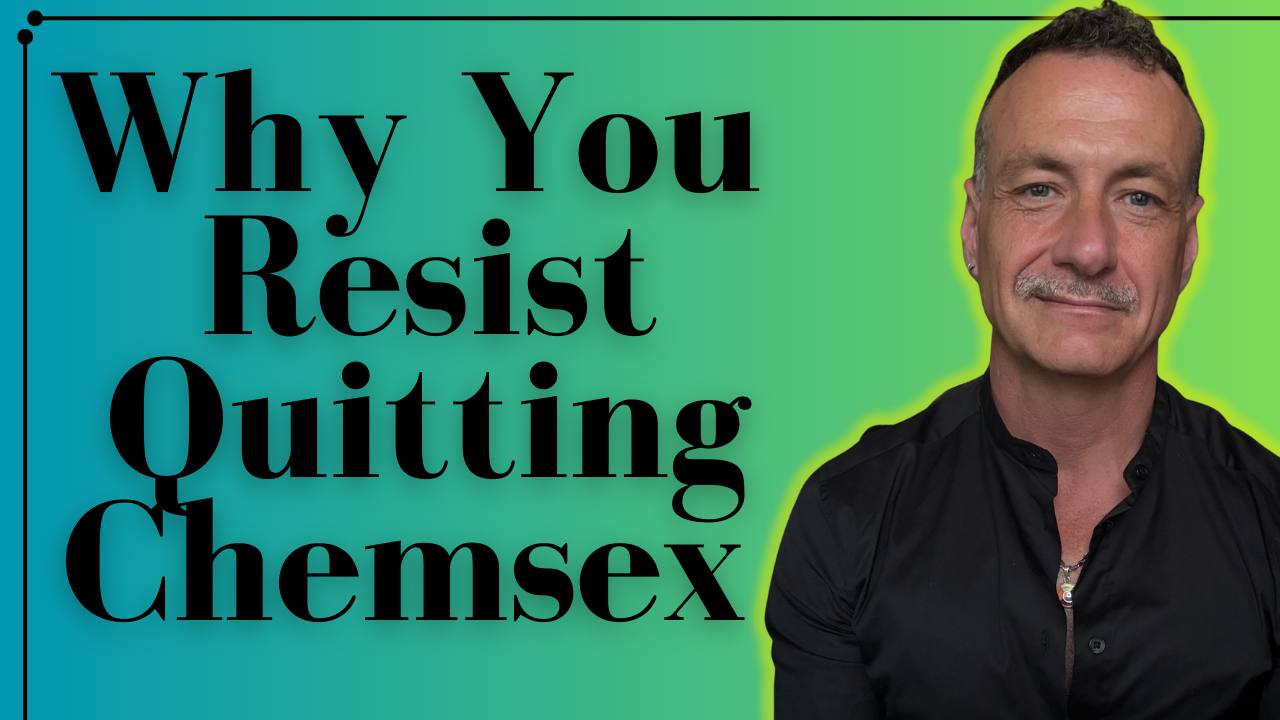
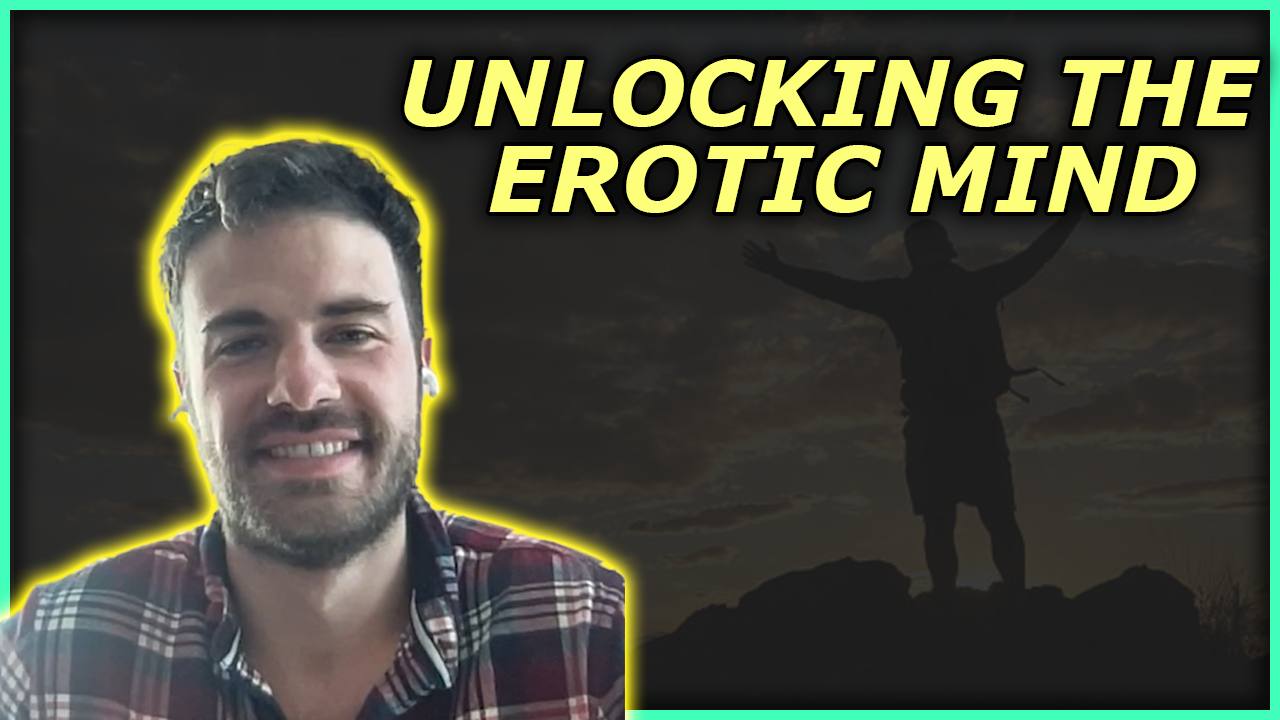

Responses